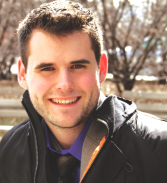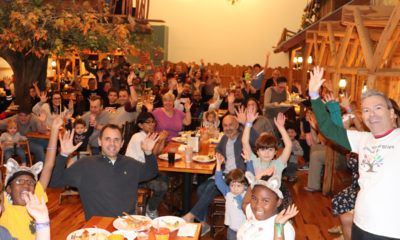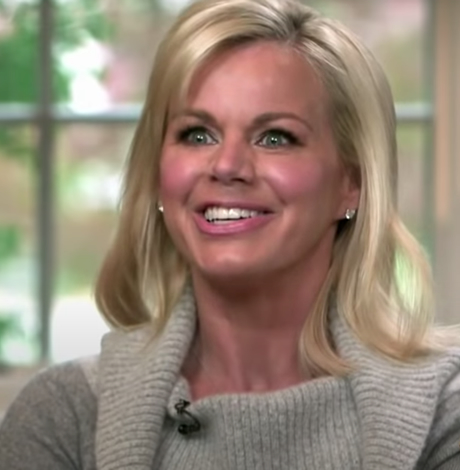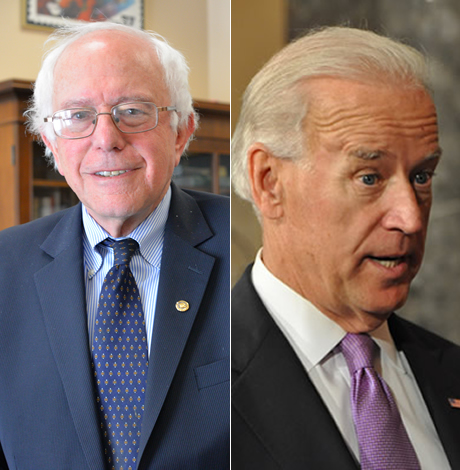Arts & Entertainment
‘That kid from YouTube’
Young Iowan releases a book about growing up with his ‘Two Moms’
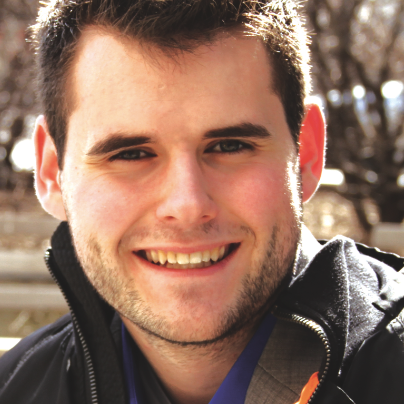
You know him as “That kid from YouTube,” but the now 20-year-old loving son of two moms, Zach Wahls hopes he will soon be “That kid from the New York Times Best Seller” list.
“We’re all keeping our fingers crossed — it would be great to be a New York Times best selling author before I can legally have a drink to celebrate that fact,” says former Eagle Scout Wahls about his two-week-old memoir “My Two Moms,” which has been in or near the Amazon top 100 best sellers all week.
A major boost for Wahl’s book came last week with his April 30 appearance on “The Daily Show with Jon Stewart,” on Comedy Central, which caused his book about being raised with Iowa values by a committed lesbian couple to jump up the Amazon’s 22nd spot.
Before he was on the “Daily Show” or Ellen DeGeneres, Wahls was a viral video sensation. Not because he did a weird impression or blew something up, but because he gave an incredible, moving testimony before the Iowa House Judiciary Committee, which was considering sending to Iowans a Constitutional amendment that would undo a state Supreme Court decision to extend marriage rights to same-sex couples.
In his testimony, Wahls discussed his excellent grades and outstanding athletic achievements, opening his own business, studying engineering at the University of Iowa and his time in the Scouts where his mother Terry, whom he calls “short mom,” was a den mother, while “tall mom” Jackie helped out with the Cub Scouts.
“If I was your son, Mr. Chairman, I believe I would make you very proud,” Wahls says in one memorable moment of the video.
But this all-American boy — who says he can’t drink, but does enjoy a cigar every once in a while, and would like to celebrate the success of his book with one if he makes the Times list — is now turning his 15 minutes of fame into a career of advocacy.
His book chronicles the struggles his family faced over the years — such as mother Terry’s struggle with M.S. — and the values that kept them together.
On the phone from Asheville, N.C., on Monday, the day before the vote on Amendment One, he has a lot to say.
WASHINGTON BLADE: The book is organized in an unusual way. Why?
ZACH WAHLS: The book has 14 chapters and two appendices. The first chapter is “Be Prepared,” which is the Boy Scouts’ motto, and the last chapter is “Do a Good Turn Daily,” which is the Scouts’ slogan. And the middle 12 chapters are named and oriented after and on a tenant of the scout law. And the scout law is a scout is trustworthy, loyal, helpful, friendly, courteous, kind, obedient, cheerful, thrifty, brave, clean and reverent.
Each chapter is an examination of that value, and how I learned it from my moms first, and how I learned it from the Boy Scouts, what it means to me, and what it means to the LGBT community in general.
BLADE: What was the “Daily Show” experience like?
WAHLS: It was the seven coolest minutes of my life.
And Jon, actually — unlike the host of literally every single other show — actually came to the green room backstage before the show and we had a nice little conversation. It was very clear that he had read the book, it was clear that he enjoyed the book and we just had a great little conversation.
I was standing in the green room, and what he does is that he starts talking very loudly as he’s walking toward you down the hall, so you can hear him coming, and he knows that you can hear him coming.
He’s just such a classy guy. Just 100 percent pure class.
I went to the rally to restore sanity last year, and it was the first time I’d ever ridden a Greyhound, actually. Like 24 hours on a Greyhound from Iowa to D.C. to the rally, and I’ve been watching the show since I was like 10. It was an amazing moment.
My moms and my sister were there, they had a great time too. It was great for sure.
BLADE: You seemed very confident and calm. Were you nervous?
WAHLS: Well he came backstage before, and that helped a lot. I was like almost about to have a nervous breakdown when he actually walked into the room. So that would have been what I was experiencing when I walked on stage had he not done that. So that was useful.
It was definitely a high stakes seven minutes. We managed to have a conversation and have a great time, and it was a blast.
But they told me before I went on, don’t make any jokes, and I kept trying not to.
BLADE: But you did! You did make a joke, and it landed well, the audience laughed!
WAHLS: I was having so much fun, I couldn’t help myself.
BLADE: What is the key to changing minds on the issue of rights for LGBT people?
WAHLS: The single most important task is continuing to systematically dismantle this myth of choice.
I think that’s why the YouTube video was so successful. I mean I never come out in the video and say I’m straight — and I’m hesitant to come to conclusions, because that’s something we shouldn’t do — but I think it is fairly clear in the video that I am a flaming straight man. So I think that the single most important development in any person’s movement on the continuum of opposition to LGBT rights to support for LGBT rights is the understanding that sexual orientation is not a choice. It is a pervasive misconception, and in many cases a pervasive lie that unfortunately many Americans do believe to be true.
But when you see people move beyond that misconception, it becomes very difficult for them to believe subsequently that homosexuality is immoral. Because if it’s not a choice, how could it be immoral? It’s much like historically saying someone is immoral or less than simply because of the color of their skin or the organs between their legs.
It used to be the belief that women were subservient to men and that blacks where inferior to whites, and that’s why — when it came to women’s suffrage or civil rights in the sixties — you had to address the underlying discrimination and the underlying beliefs before you could have the political solution that guaranteed equal rights, and that’s what we’re seeing here as well.
BLADE: One problem the LGBT movement often has with allies is commitment. Polling shows most Americans are with the LGBT activists on the big issues like employment, housing, benefits and even equal marriage is polling over 50 percent nationwide, but that doesn’t mean that supporters bother to leave the house to go vote for our rights in a special election like North Carolina’s. How do we inspire more allies to action?
WAHLS: To be clear, I don’t consider myself an ally. I might be straight cisgender man, but in my mind, I am a member of the LGBT community.
I know the last thing that anyone wants is to add another letter to the acronym, but we need to make sure as a movement we’re making a place for what we call “queer-spawn” to function and to be part of the community.
Because even though I’m not gay, I do know what its like to be hated for who I am. And I do know what its like to be in the closet, and like every other member of the LGBT community, I did not have a choice in this. I was born into this movement. I want to be explicitly clear first of all.
These fights affect me, they affect my family.
Now my best friend Nick, a straight guy, he’s an ally.
In terms of how we can have an upgraded commitment from straight allies, the fact is that if you look at the straight community, generally, there is a lot of excitement. And its not just support but excitement on this issue, because I think — in liberal politics generally — this is one of the few issues across the country in which we are not just standing our ground, but actually advancing as a progressive community.
Gay people can’t win this alone though. There aren’t enough people in the LGBT community itself to win this on their own. So in terms of what strategies are most effective? I think that making sure that you are illustrating these personal connections and engaging in this relationship building. Obviously, I come from a somewhat biased point of view, but if you have a close family member or a close friend who is openly LGBT, not only are you more likely to support the issue, but you’re more likely to act as well.
BLADE: There are lots of heartfelt YouTube videos out there with people explaining why LGBT rights matter. Why did yours blow up so big?
WAHLS: I know, its kind of crazy! Well, I think there are two factors. First is that it disrupted some expectations. When you think of whatever that stereotype of two women raising a kid is, a clean cut engineering student, Eagle Scout, entrepreneur — from Iowa to boot — probably isn’t that stereotype. And I think people enjoy seeing those stereotypes getting broken down.
I think more importantly and fundamentally, in that video, I hope you really do see me display my love for and commitment to my family. And I think it reminded a lot of people of their own love and their own commitment that they feel for their families. And I think that was really what struck home. The confidence, the passion, and at the end of the day, the love that was driving through.
BLADE: After three years of equal marriage, what are attitudes like across Iowa today on the issue of same-sex marriage?
WAHLS: Actually, The Onion had a great article, when marriage became legal, and the headline was “Hell opens up and swallows Davenport Iowa.” Obviously it was satire. The sky didn’t fall. Divorce rates are falling, straight people are still marrying straight people. They aren’t catching the gay. 92 percent of Iowans feel that they have not been affected by the Supreme Court ruling in any major way and 56 percent of Iowans oppose a Constitutional amendment to reverse the Supreme Court decision [that extended marriage rights to same-sex couples in Iowa].
It’s important to note that there is still a small disconnect between those who support same-sex marriage and those who would oppose its repeal. I think that this speaks to the Iowan ethos, which is the notion of “live and let live.” Even though they may not necessarily support same-sex marriage, they aren’t willing to take it away from couples like my parents.
BLADE: Until your video went viral on YouTube, yours was pretty much a quiet, average all-American family. How have your mothers handled all of the extra attention?
WAHLS: My moms have handled it really about as well as you can expect mothers to handle this kind of thing. It was definitely hard at some points for them. They see, obviously a lot of potential when you’re in the limelight to come under very sharp criticism and that happened.
There was a conservative radio host in Iowa who spent 20 minutes of his show going through my speech line by line by line accusing me of all kinds of rhetorical black magic. He seems to think I’m some kind of mastermind or something, which is quite flattering. But my moms hear that, and their protective instincts kick in, definitely.
They’ve been overwhelmingly proud, no doubt about it, but their primary concern is my safety. But they know I’m a grown man, I can handle myself — more often than not — so they’re mostly proud.
Although I do spend a lot less time at home, so I don’t see them or my sister nearly as frequently as I used to. And we’re all a little disappointed about that. My sister and I were both looking forward to the Avengers movie together for a long time, and she caved and saw it with “short mom,” which I was a little upset about. But I understand. I guess. [laughs]
Unlike her, I’m willing to wait til I get home to see it.
Sports
Trans cyclist’s victory sparks outrage in conservative media
Katheryn Phillips is originally from DC

On the heels of UPenn erasing the record of the first openly transgender NCAA Division I All-American swimmer and the U.S. Supreme Court’s decision to tackle bans on trans student-athletes, right wing media is now all hot and bothered about the latest trans woman who won a cycling championship — even though she competed according to the rules.
On Tuesday, 58-year-old Katheryn Phillips finished first in USA Cycling’s Lyons Masters National Championship race for women aged 55-59, with a time of 1:42:10, according to the official results posted by the organization. The record shows her gender as “F” for female.
One second behind Phillips was Julie Peterson, with a time of 1:42:11 — as were three other cyclists: Mary Beth Grier, Andrea Cherniak-Tyson, and Carolyn Maddox.
Peterson, 57, was so outraged, she told Fox News she refused to stand on the podium in second place next to Phillips. Her story was swiftly shared by the New York Post (also owned by Fox’s parent company News Corp.), the Daily Mail, Breitbart, and other conservative media.
Both Peterson and another competitor are accusing USA Cycling of “hiding” that a transgender woman had registered to race.
“It was hidden from us. Katheryn Phillips, KJ’s name, was not on that list. And I checked it up all the way to the point of closure when we couldn’t register online anymore,” Debbie Milne told Fox.
“If I had known, I wouldn’t have spent thousands of dollars in travel and time off work to come and do a race,” Peterson said. Fox welcomed Milne, 56, who finished seventh on Tuesday, to Fox & Friends Thursday morning.
(Video courtesy of Fox News)
Peterson told Fox she did complain to USA Cycling officials prior to the race. Both Milne and Peterson referred to Phillips as a male, and with “he/him” pronouns.
“To be fair to all humans, if we want to say ‘him’ or ‘her,’ he was born a biological male, that is a fact,” Milne said. “And that is the thing that makes it an unfair advantage. Whatever has happened after that is a whole different topic.”
“I said, ‘I don’t want to race against a man,’ and they quickly scolded me and said ‘Oh, you can’t call him a man,’ and I’m like ‘Well, he is a man,’ so I was quickly scolded and corrected that it is a woman and I don’t even know what to say.”
USA Cycling did not respond to the Washington Blade’s emails requesting comment.
Phillips, who goes by Kate and by “KJ,” is a former rugby player with the D.C. Furries, who stated in the comments of a 2024 article published by Zwift Insider that she was the first out trans athlete in the U.S. to compete under the 2004 International Olympic Committee’s guidelines on trans participation.
“When USA Rugby told me about the IOC decision in 2004, I raised my hand to be included. I experience nothing but joy when I play, ride, and race,” Phillips said.
As the Blade has reported, the International Olympic Committee drastically revised those rules in 2021, and in March, Republican lawmakers in D.C. demanded the IOC ban trans female athletes from women’s sporting events altogether.
The Blade also reached out to Phillips for comment but as of press time we have not received a response. She told Zwift Insider in March 2024 she does not let those who disapprove or spread hate impact her performance or her attitude.
“I am unaffected by dissent. I love, I share joy, I am me, and I have been my authentic self for decades,” she said. It’s been reported Phillips came out in 1999, and told Zwift Insider she considers herself a lifelong cyclist.
“I’ve been on a bike for as long as I can remember,” said Phillips. “As kids, my friends and I rode all over town, we were feral kids; no cell phones, no trackers … we just roamed, and nobody got in trouble or hurt bad enough not to ride home … Scrapes/bruises/cuts were not an issue for us. In my teens, I worked for myself as a court/legal messenger, doing all of the work via my bike until I got a car. Raced BMX as a kiddo (when I mowed lawns to cover the race entry fees), I did MTB stuff (non-racing) and Sprint/Olympic Triathlons in my 30’s, and now I’m racing on Zwift, Road/Gravel, and CX in my 50s.”
In the comments section, Phillips made clear she’s not competing to win.
“I don’t do sports for victory, I do it because like many other women, I am an athlete to my core,” she said. “Unlike some, I am not there to WIN, I am there to do my best with the competitors and teammates I have around me trying to do the same…we are in it for the experience. I rejoice in their wins, and a lot of joy is reflected back to me when I have a good day.”
Celebrity News
Nina West’s ‘Sugar in the Tank’ tour comes to Rehoboth Beach
Drag Race’ contestant will be at Clear Space Theater Company on July 6
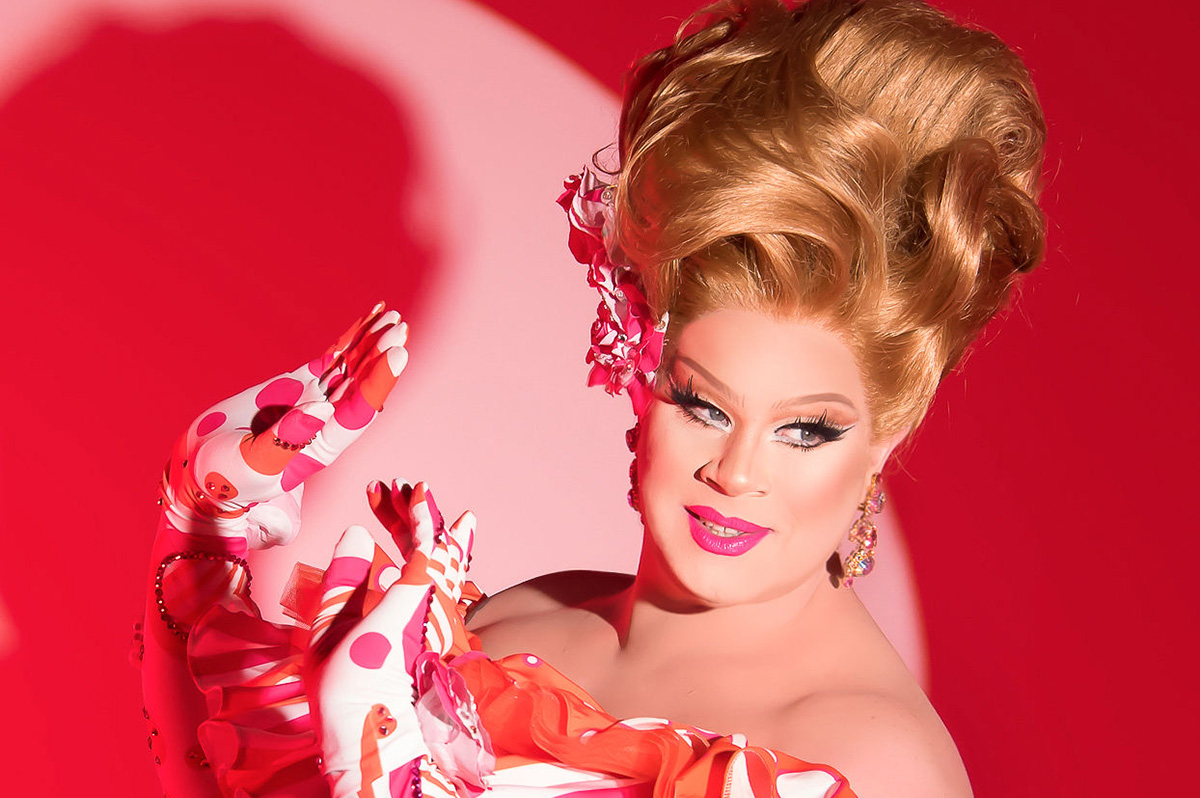
Nina West, a drag queen known for competing on “RuPaul’s Drag Race,” is currently on her ‘Sugar in the Tank’ tour around U.S. cities.
With previous shows in Key West, Fla., New York, and hometown of Columbus, Ohio, the tour is staying put in Provincetown, Mass., from late July to early September. It will make a stop at Clear Space Theater Company in Rehoboth Beach, Del., as part of a summer cabaret series on July 6.
Andrew Levitt has been performing as Nina West for 25 years, who got her rise from starring in “Drag Race” Season 11, where she placed sixth and won Miss Congeniality, a title awarded to the contestant who is regarded as the kindest and most helpful one of that season.
West has toured “Hairspray” on Broadway as Edna Turnblad, starred in a couple of feature films and published a children’s book titled ‘The You Kind of Kind.’
Levitt said he wrote this show in response to attacks from the government towards the LGBTQ community.
“‘Sugar in the Tank’ is a big old gay fabulous summer musical,” Levitt told the Washington Blade. “The show is a response to the darkness that I think has fallen over a lot of people in the country and it’s hopefully trying to bring a little bit of light and a little bit of joy.”
“Sugar in the Tank” is a Southern euphemism for gay, often holding a negative connotation. Levitt said he wanted to “reclaim and embrace” queerness in times when some people want to take that away.
Levitt said he knew he would be traveling to predominantly queer destinations like Key West and Provincetown for these shows and that was always at the forefront of his mind when writing “Sugar in the Tank.”
This will be Levitt’s first time in Rehoboth Beach. Clear Space Theater is considered Delaware’s second-largest professional non-profit theater and the state’s most prolific producer of professional theater. The space seats just 170 patrons and Levitt said he loves the intimacy of a small venue and that it’s his favorite way to do a show.
“Stages like this size are the perfect size for me because it allows for me to really showcase my talents,” Levitt said.
Levitt founded the Nina West Foundation in 2015 to uplift and sustain the central Ohio LGBTQ community, which has raised more than $3 million for various organizations. He said he makes activism part of the entertainment in his career.
“That’s the nuance of what drag is. We can be ridiculous for fun and we can be serious but it’s all wrapped up into one thing,” Levitt said. “I think that can be the power of it.”
Levitt said West is so much more confident now than when he first started performing as her. He didn’t know where his voice belonged in the community in the past, but because of those who came before him in this art form, he has learned to harness the power of the stage and the power of the wig to be able to tell stories.
“I really love my community. I love queer people. I love who we are and what we represent,” Levitt said. “Knowing our history and knowing that we’ve been through a lot, I’m really thrilled that as a queen, I can use my voice and my platform to help try to better our community, not try to speak for everyone but try to lend voice to people who desperately need it.”
Levitt’s advice to young queer artists is to not give up on yourself, surround yourself with supportive people and allow yourself the opportunity and space to fail, to ask questions, and to not give up.
“Our young people have got to be told they matter,” Levitt said. “Oftentimes, people are told that they don’t matter, that their voice doesn’t matter, that they cannot make a difference and I want to remind every single person who’s doing this that they do matter, they can make a difference, their voice is intrinsic to who we are as a community.”
If Sugar in the Tank was a drink, it would be a Bahama Mama or Sex on the Beach, said Levitt, because they are delicious, juicy, and sugary, just like the show.
“I just want everyone to know that they should come to ‘Sugar in the Tank’ and experience a show that’s built on joy and levity and silliness and fun and come have some fun with me and show me the fabulous love of Rehoboth Beach,” Levitt said. “I can’t wait.”
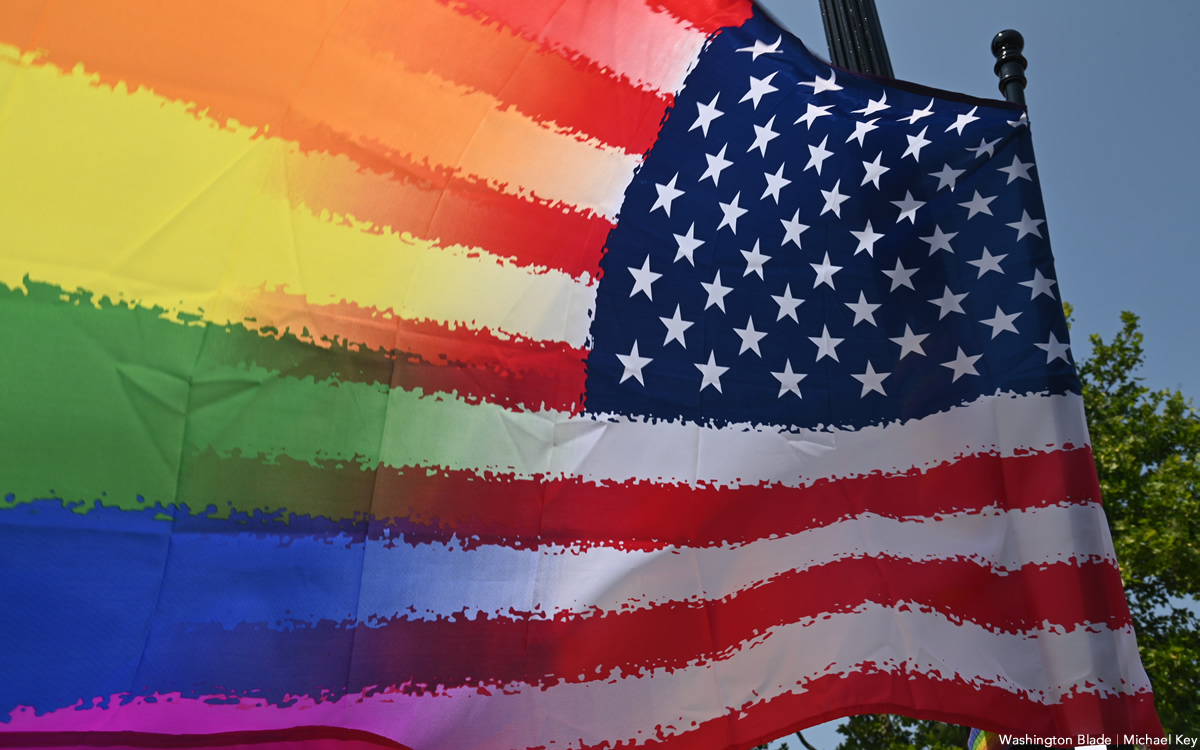
The Rainbow History Project will host “Pickets, Protests and Parade Exhibit Tour” at 7 p.m. at Freedom Plaza. This event honors the courage, resilience and resistance of D.C.’s gay community. For more details, visit Eventbrite.
Go Gay DC will host “LGBTQ Community Social” at 7 p.m. at Hyatt Centric Arlington (1325 Wilson Blvd.). This fun event is ideal for meeting new people and community building. Attendance is free and more details are available on Eventbrite.
Xavier Entertainment DC will host “Cowboy Carter Afterparty” at 10 p.m. at Nellie’s Sports Bar. There will be fireworks, parades, and patriotic fun. For more details, visit Eventbrite.
Mezcal Amaras will host “Sha Boing Boing Showdown” at 6 p.m. at Snappy’s Small Bar (3917 Georgia Ave., N.W.). Get ready to test your hotdog eating abilities. Tickets start at $12.51 and can be purchased on Eventbrite.
Illusions Drag Queen Show will host “Drag Queen Dinner Show” at 7 p.m. at 2323 18th St. N.W. Guests will be treated to the very best celebrity drag impersonations in entertainment. Tickets start at $12.97 and are available on Eventbrite.
Thurst Lounge will host “A Thirsty Cowboy Afterparty” at 5 p.m. DJ Apollo will be performing. For more details, visit Thurst’s website.
9:30 Club will host “Gimme Gimme Disco: A Dance Party Inspired by ABBA” at 9 p.m. The DJ will play plenty of disco hits from the 70s and 80s. Tickets cost $45.30 and can be purchased on Ticketmaster.

